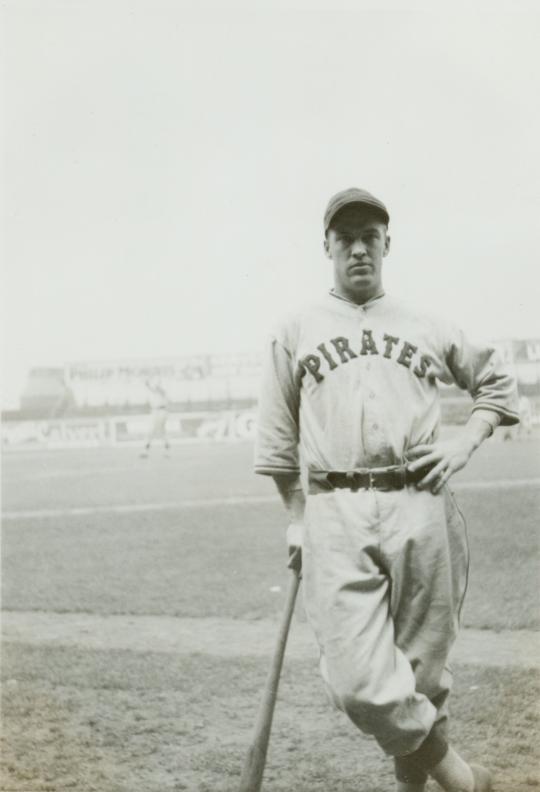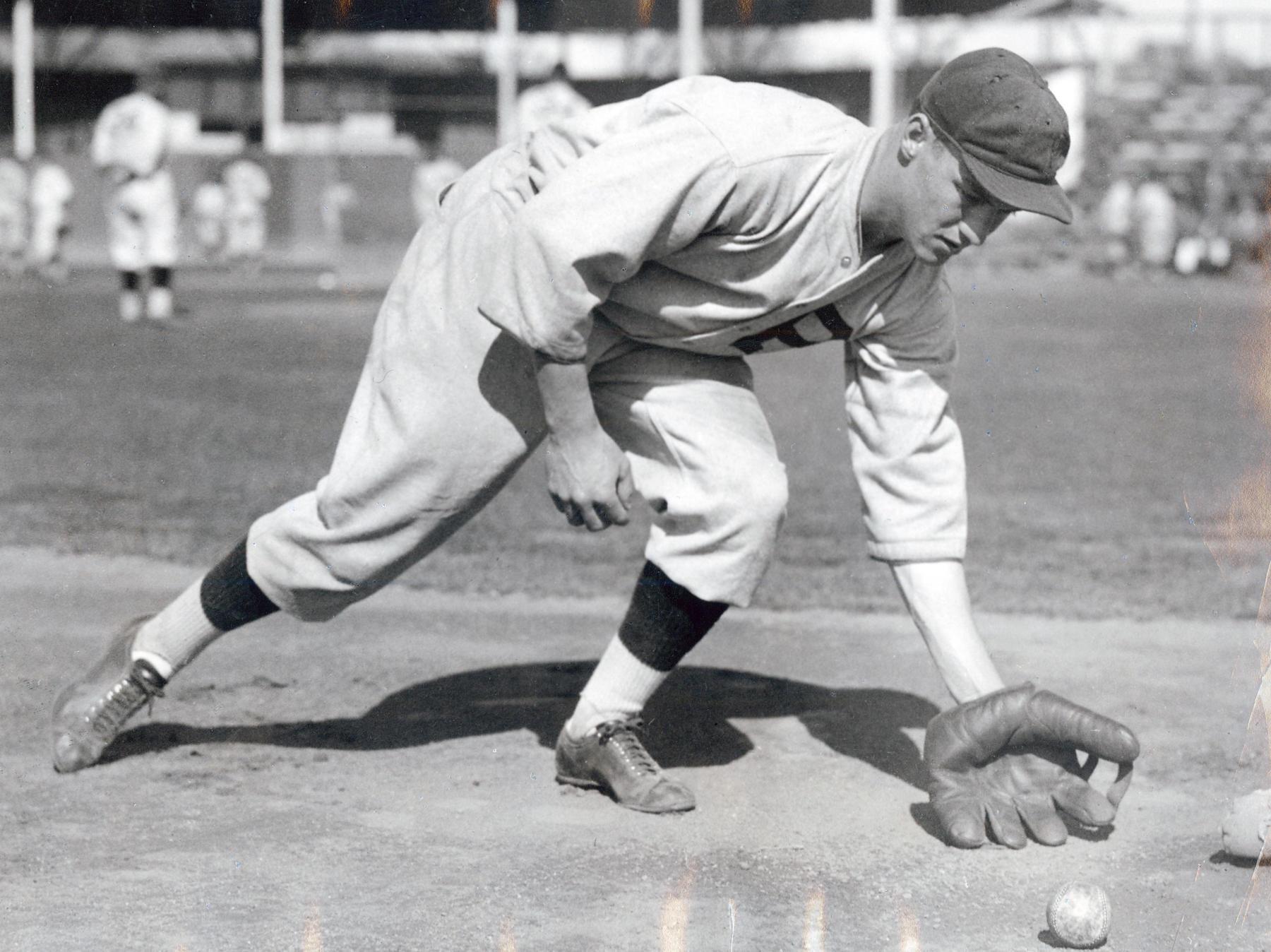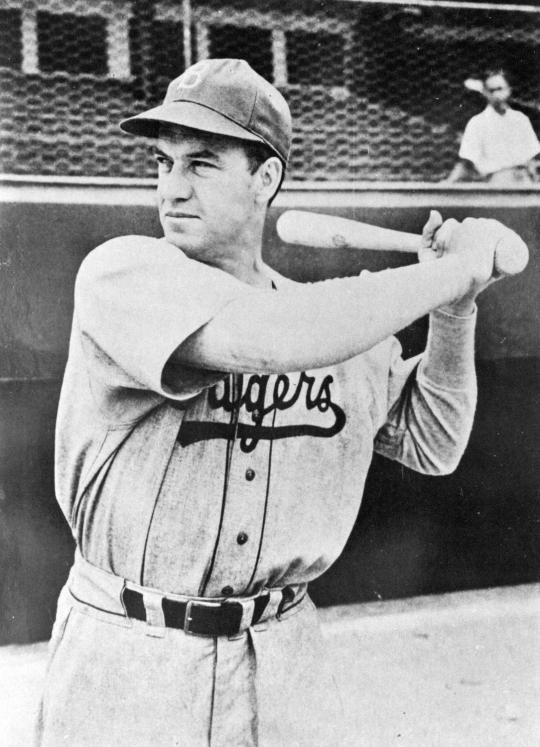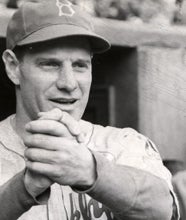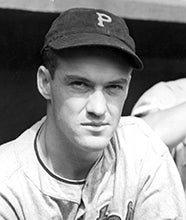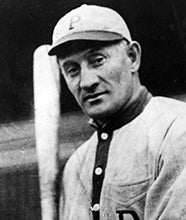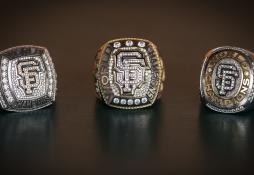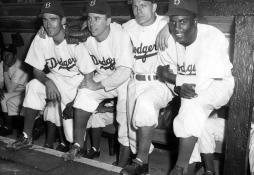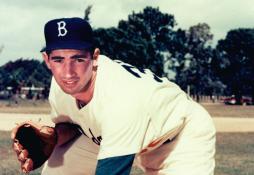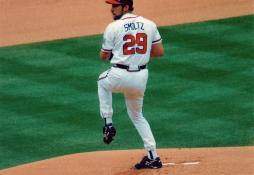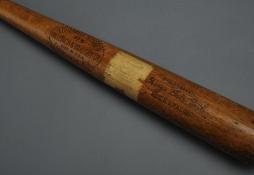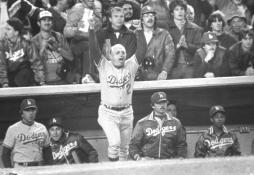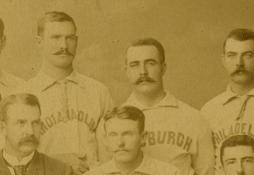- Home
- Our Stories
- Vaughan redefined play at shortstop
Vaughan redefined play at shortstop
Shortstops of Arky Vaughan’s offensive caliber rarely go unnoticed. But even during his own time, Vaughan managed to quietly go about his business – while posting records that still stand.
Born on March 9, 1912, Joseph Floyd Vaughan impressed his teammates and coaches from the start. Fellow legendary Pittsburgh Pirates shortstop and Hall of Fame member Honus Wagner was a Pirates coach and Vaughan’s roommate on road trips. Wagner called Vaughan “one of the sweetest hitters I ever saw. And fast!”
Vaughan’s .318 lifetime batting average is only eclipsed by Wagner’s .329 among shortstops. In his relatively short big league career that lasted 14 seasons, Vaughan accumulated more than 1,000 runs, 900 RBI and 2,000 hits. He also had an astounding 937 bases on balls, helping him compile a .406 on-base percentage that ranks 43rd all-time.
Vaughan emerged on the baseball scene for the Pirates at the age of 20, hitting .318 in 129 games in 1932. His best offensive season came in 1935 when he placed third in NL MVP voting. He led the league with a .385 batting average, a .491 on-base percentage, a .607 slugging percentage and 97 walks. He also produced career highs in hits (192), home runs (19) and RBI (99).
Originally given the name Floyd Ellis Vaughan, he later changed his name to Joseph in the late ’30s, but he was most well known for the nickname Arky. Vaughan picked up the nickname Arky from friends in California after they learned of his birthplace in Arkansas. His family moved to California in search of work when Vaughan was young.
In his career, he played 10 seasons for the Pirates, never hitting below .300 with the Bucs. He was a model of consistency, playing in seven All-Star games batting .364 in those contests and also hitting two home runs in the 1941 Midsummer Classic.
The Pirates traded Vaughan in December of 1941 to the Brooklyn Dodgers for four players. He played third base for the Dodgers primarily in 1942, dropping below .300 in batting average for the first time in his career at .277. He rebounded in his second season with the Dodgers hitting .305, and led the league in stolen bases with 20. However, a suspension of pitcher Bobo Newsom by manager Leo Durocher over an alleged spitball led to a dispute. In protest Vaughan refused to play, staging a one-game strike.
At the end of the season, Vaughan retired to his California ranch, denying that his retirement had anything to do with Durocher. But he returned to the Dodgers in 1947, after three years out of the league, when Durocher was suspended from baseball.
Vaughan played sparingly while batting .325, mainly being utilized as a pinch hitter in the inaugural season of Jackie Robinson. In the ’47 World Series, he had three plate appearances, doubling and walking once. Injuries caught up to him the following season, leading to his release after a career-low .244 average.
He played one final professional baseball season in the Pacific Coast League for the San Francisco Seals. He retired officially at the conclusion of the season and once again returned home to his ranch in California to pursue his hobbies of hunting and fishing.
On Aug. 30, 1952 Vaughan drowned while fishing with a friend in an extinct volcano lake crater. A sudden thunderstorm tipped the boat, leaving the men to swim. Witnesses say the two men immediately swam for shore, losing strength about 65 feet out.
In 1985, Vaughan was inducted into the Hall of Fame by the Veterans Committee.
“I never saw anybody who could go from first to third or from second to home faster than Vaughan,” said fellow Pirate Rip Sewell. “Like we used to say, when he went around second his hip pocket was dipping sand. That’s how sharp he cut those corners.”
Kevin Stiner is a former Public Relations intern for the National Baseball Hall of Fame and Museum
Mentioned Hall of Famers
Related Stories

Library research a hallmark of Museum’s mission
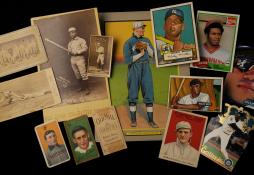
#CardCorner: 2015 Topps Mike Trout

A Foothold on History
Fans Cast Their Votes for Frick Award Ballot Candidates at Museum’s Facebook Page
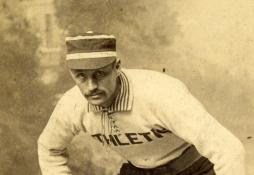
19th century star Harry Stovey

#CardCorner: 1979 Topps Bump Wills
Sun, Fun and Baseball: Hall of Fame Classic Thrills Fans at Cooperstown’s Doubleday Field
01.01.2023

